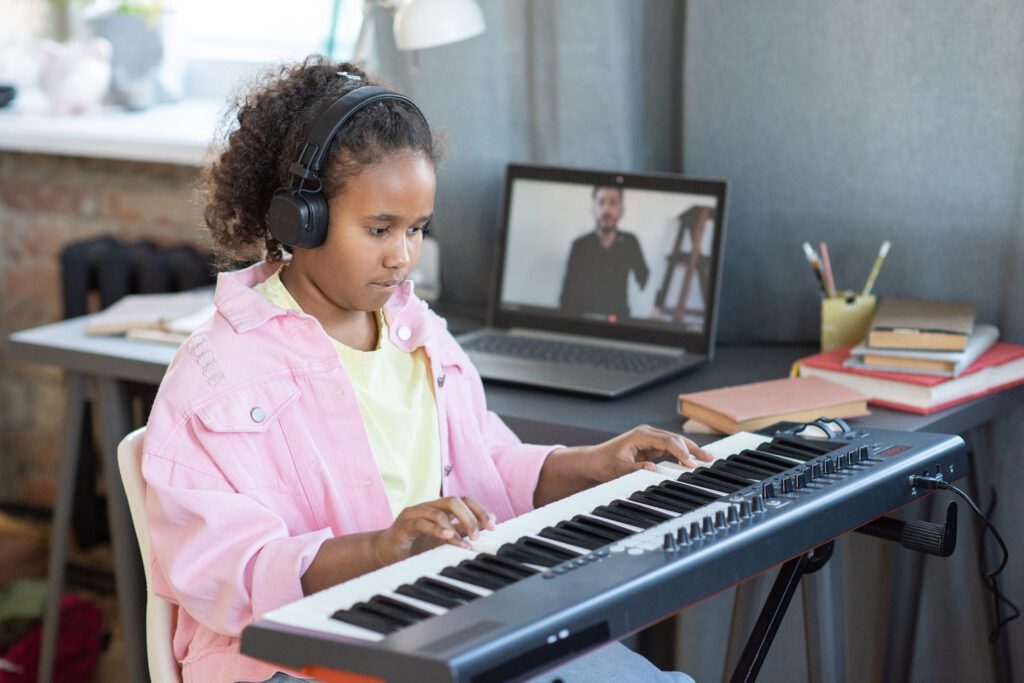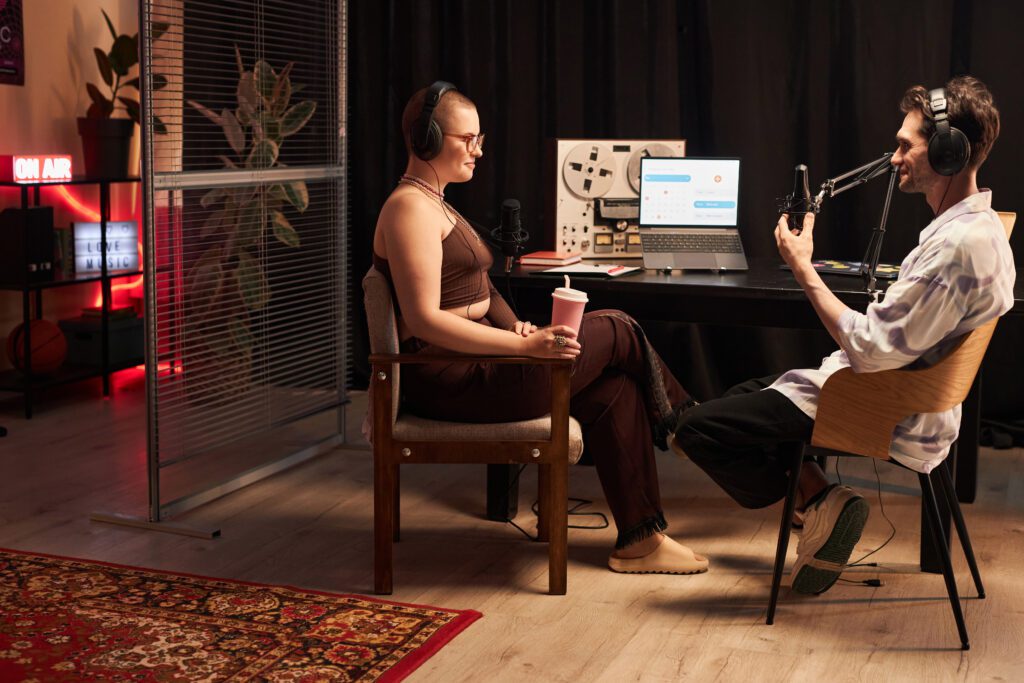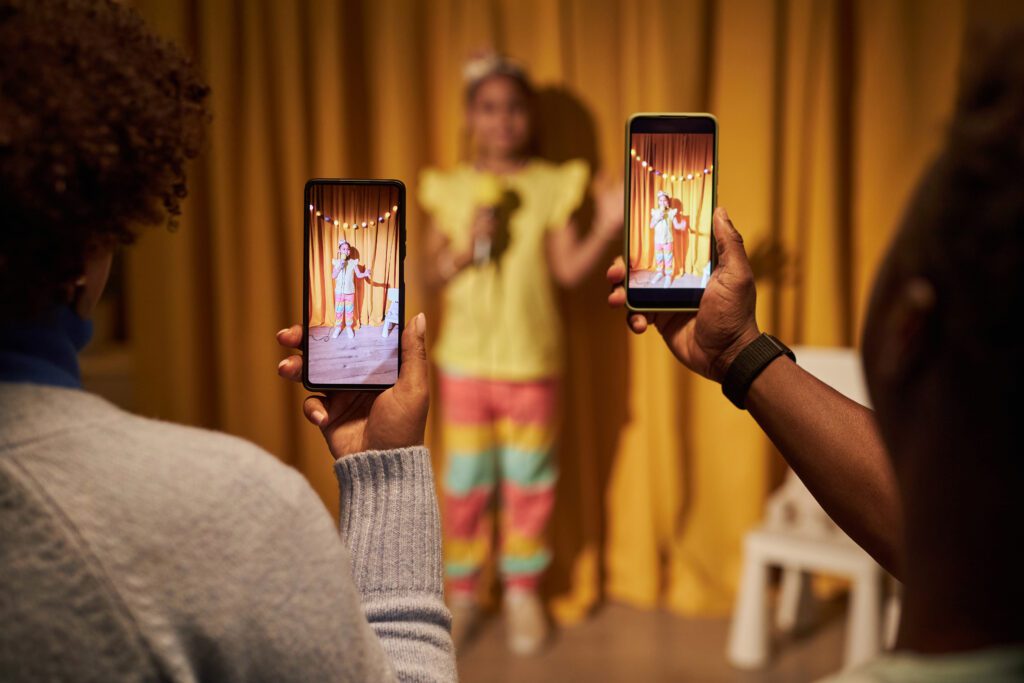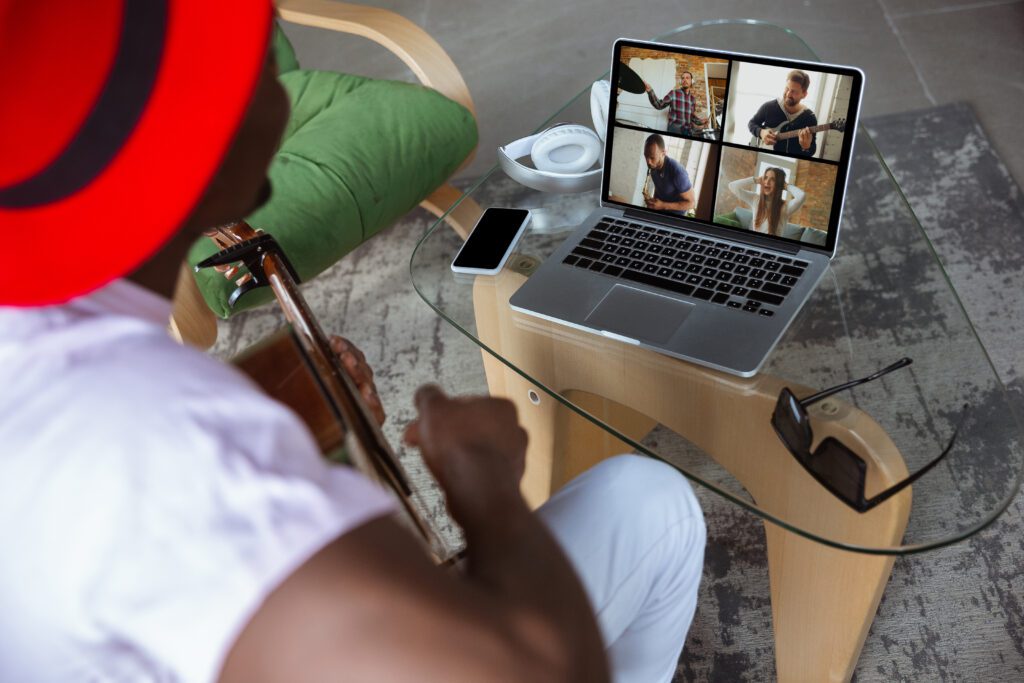Overcoming Performance Anxiety in Virtual Competitions | From Stage Fright to Spotlight.
Introduction
Overcoming virtual performance anxiety has become a vital skill in today’s digitally connected world, where virtual competitions are reshaping the way talents are showcased. These platforms offer an incredible opportunity for musicians, dancers, speakers, and artists to present their artistry to audiences across the globe—all from the comfort and familiarity of their own homes. However, while the virtual stage removes some traditional barriers, such as travel or venue logistics, it introduces unique challenges that can heighten performance anxiety.
Virtual competitions demand not only exceptional talent but also the ability to adapt to technology-driven environments. The absence of a live audience can feel isolating for some, while the pressure of being judged through a screen can amplify nerves. Overcoming virtual performance anxiety is about more than simply managing stage fright; it involves turning fear into confidence, mastering technical tools, and ensuring that every performance reflects your true potential.
In this blog, we’ll explore the causes and symptoms of virtual performance anxiety and provide actionable strategies to tackle it effectively. Whether you’re a seasoned performer or stepping into the virtual spotlight for the first time, these insights will help you transform apprehension into confidence and deliver your best performance. Let’s embark on this journey from stage fright to the spotlight!
What Is Virtual Performance Anxiety?

Virtual performance anxiety is a unique phenomenon that has emerged with the growing prominence of online competitions and digital performances. While traditional stage fright has been extensively studied, the shift to virtual platforms introduces a new layer of challenges that amplify performers’ fears.
Unlike physical stage anxiety, where the performer faces a live audience, virtual performance anxiety is influenced by a mix of technical pressures, isolation, and heightened self-awareness. The dynamics of performing through a screen significantly alter how performers perceive themselves and their audience.
Key Characteristics
- Heightened Focus on Appearance: Being on screen often feels like being under a magnifying glass. Performers become hyperaware of their appearance, movements, and expressions, leading to unnecessary self-criticism.
- Fear of Misinterpretation: Without immediate audience feedback, performers may worry that their expressions or emotions are not being conveyed as intended.
- Technical Dependency: Virtual platforms rely on technology, making performers vulnerable to technical glitches, such as audio lags or video freezes. These issues can distract performers and heighten their anxiety.
- Recording Pressure: The knowledge that performances are recorded and can be replayed indefinitely adds to the stress of being judged, not just in real time but in perpetuity.
Virtual performance anxiety intertwines psychological apprehensions with the practical demands of technology, creating a unique challenge that performers must address to excel in the digital space.
Understanding the Unique Challenges of Virtual Performances

The virtual performance space is a double-edged sword—it offers unprecedented reach and convenience while introducing challenges that performers may not face on a physical stage. Let’s delve deeper into these challenges to better understand their impact.
1. Technical Hurdles
Technical issues are the most immediate and visible challenges in a virtual performance setting.
- Internet Stability: A slow or unstable connection can disrupt the flow of a performance, causing performers to lose focus and audiences to lose interest.
- Audio and Video Quality: Low-quality sound or pixelated visuals can undermine even the most outstanding performances, shifting the audience’s attention from the art to the technical flaws.
- Platform Familiarity: Each virtual platform has its own set of features and limitations. A lack of familiarity can lead to confusion and mistakes, such as sharing the wrong screen or accidentally muting oneself during the performance.
2. Isolation and Disconnection
In a live performance, performers feed off the energy of their audience—the claps, cheers, and visible engagement provide real-time validation. Virtual performances lack this immediacy, often making performers feel as though they are playing to a void.
- Emotional Disconnection: Without an audience to interact with, performers may struggle to feel the same emotional connection to their craft.
- Delayed Feedback: In virtual settings, feedback often comes through comments or post-performance evaluations, which can feel less impactful than live applause.
3. Amplified Self-Consciousness
The on-screen environment forces performers to view themselves constantly, leading to overanalysis.
- Visual Self-Awareness: Performers may focus too much on their expressions, posture, or even minor imperfections, detracting from their delivery.
- Fear of Judgment: Knowing that their performance will be scrutinized by an online audience, many performers fall into the trap of perfectionism, which only intensifies their anxiety.
4. Pressure of Digital Permanence
The virtual stage is unlike any physical one because it often leaves a permanent record.
- Recorded Performances: Mistakes or awkward moments captured in recordings can become a source of long-term anxiety.
- Viral Potential: The possibility of a performance being shared widely adds an extra layer of stress, as performers worry about maintaining a flawless image.
Understanding these challenges is essential for creating a strategy to overcome them. Awareness allows performers to address each hurdle methodically, transforming obstacles into opportunities.
Common Symptoms of Virtual Performance Anxiety

Identifying the signs of virtual performance anxiety is critical to addressing it. These symptoms manifest in various ways, often overlapping and compounding the performer’s stress.
Physical Symptoms
The body reacts to anxiety with a range of physical symptoms that can directly impact performance quality:
- Sweaty Palms: A common response to stress, making it difficult for musicians or dancers to maintain a grip on their instruments or moves.
- Rapid Heartbeat: A racing heart can create a sense of panic, further intensifying nervousness.
- Trembling Hands: For performers who rely on precise movements, such as musicians or artists, this can be particularly debilitating.
- Shortness of Breath: Difficulty breathing not only impacts vocalists but also affects overall composure.
Emotional Symptoms
The emotional toll of virtual performance anxiety can be just as impactful as its physical effects:
- Overwhelming Fear: A looming sense of dread that often leads performers to question their abilities.
- Self-Doubt: Performers may feel inadequate, fearing they aren’t good enough to compete on a virtual stage.
- Frustration: The combination of technical issues and anxiety can lead to feelings of irritation and helplessness.
Cognitive Symptoms
Anxiety also affects a performer’s mental clarity, making it difficult to focus on the task at hand:
- Negative Self-Talk: Constantly criticizing oneself or predicting failure can sabotage a performance before it begins.
- Overthinking: Obsessing over potential mistakes or technical failures can prevent performers from staying in the moment.
- Difficulty Concentrating: Anxiety clouds judgment and focus, making it hard to execute even well-practiced routines.
Behavioral Symptoms
Behavioral changes often signal the presence of anxiety:
- Procrastination: Avoiding rehearsal or delaying preparations can stem from fear of facing the performance.
- Overpreparation: While preparation is crucial, excessive rehearsal can lead to burnout and increased anxiety.
- Avoidance: Some performers may cancel or withdraw from virtual competitions altogether to escape the pressure.
Recognizing these symptoms is the first step toward managing them. By understanding how anxiety manifests, performers can develop strategies to address each aspect and ensure they’re prepared for the unique demands of virtual competitions.
Strategies to Overcome Virtual Performance Anxiety
Conquering virtual performance anxiety requires a combination of mental, physical, and technical preparation. The following strategies are designed to help performers tackle the unique challenges of virtual competitions and transform anxiety into confidence.
1. Mental Preparation
Developing a strong mental framework is essential for overcoming anxiety:
- Positive Visualization: Visualize yourself performing successfully. Imagine every detail, from starting confidently to receiving positive feedback. This mental rehearsal can condition your brain to anticipate success instead of failure.
- Affirmations: Practice self-affirming statements such as, “I am prepared,” “I am talented,” and “I can handle this.” Repeating these can help counteract negative thoughts.
- Mindfulness Exercises: Techniques like deep breathing, meditation, or progressive muscle relaxation can calm your mind and reduce the physical effects of anxiety.
- Cognitive Restructuring: Challenge and replace negative thoughts with rational, positive ones. For example, replace “I’ll mess up” with “I’ve practiced well, and I’m ready to do my best.”
2. Technical Preparation
Eliminate technical worries by familiarizing yourself with the tools you’ll use:
- Rehearse on the Platform: Practice performing on the virtual platform to become comfortable with its features, such as muting, screen sharing, and camera settings.
- Test Equipment: Check your internet connection, camera, microphone, and lighting well before the event. Conduct a trial run to identify and fix potential issues.
- Backup Plan: Prepare for technical failures by having alternatives ready, such as a spare device or additional internet source.
- Optimize the Environment: Create a quiet, clutter-free, and well-lit space for your performance to ensure minimal distractions.
3. Physical Preparation
Your physical state affects your performance. Be mindful of how your body reacts to stress:
- Exercise Regularly: Physical activity helps release tension and reduces stress hormones like cortisol.
- Hydrate and Eat Well: A balanced diet and hydration can improve focus and energy levels. Avoid caffeine or sugar right before performing, as they may amplify anxiety.
- Relaxation Techniques: Practice yoga, stretching, or other relaxation techniques to release built-up tension in your muscles.
- Dress Comfortably: Wear attire that makes you feel confident yet comfortable, suitable for the virtual platform.
4. Practice Under Pressure
Simulate the competition environment during practice sessions to get accustomed to the pressure:
- Record Your Practice: Reviewing recorded sessions can help you spot areas for improvement and desensitize you to being on camera.
- Perform for a Small Audience: Gather friends or family for a mock performance to build confidence in handling virtual feedback.
- Set Realistic Goals: Break your performance into achievable milestones, focusing on one element at a time to reduce overwhelm.
Building Confidence Through Preparation

Preparation is a powerful antidote to performance anxiety. The more prepared you are, the more confident you’ll feel when it’s time to perform.
1. Understand Your Material Thoroughly
Familiarity with your content or routine eliminates uncertainty. Whether it’s a musical piece, a speech, or a dance, practice until it feels second nature.
- Know Your Starting Point: Rehearse how you’ll begin your performance to eliminate initial jitters.
- Master Key Segments: Identify the most challenging parts of your act and focus extra attention on them during practice.
2. Seek Feedback
Constructive feedback can be invaluable for improving your performance and boosting your confidence:
- Ask Trusted Mentors or Peers: Perform in front of someone experienced who can provide actionable advice.
- Use Feedback as Motivation: View criticism as a tool for growth rather than as a judgment of your talent.
3. Plan for the Unexpected
Confidence grows when you know you can handle surprises:
- Prepare Responses: Have a mental plan for dealing with common issues, like a muted microphone or a temporary internet outage.
- Stay Flexible: Remind yourself that minor mistakes are natural and often go unnoticed by the audience.
Building confidence is about transforming preparation into self-belief. By addressing every potential challenge in advance, you can step into the virtual spotlight feeling ready and assured.
How to Perform at Your Best in Virtual Competitions

When the day of your virtual performance arrives, the way you approach the event can make all the difference. The following tips will help you shine during the competition:
1. Set the Right Mood
Your mindset and environment play crucial roles in your performance.
- Create a Calm Atmosphere: Light a scented candle, play soothing music, or engage in light stretches to relax before you begin.
- Avoid Last-Minute Changes: Stick to your rehearsed plan to minimize unnecessary stress.
2. Engage with Your Virtual Audience
Even in a virtual setting, audience connection is vital.
- Acknowledge Your Viewers: Look into the camera as if making eye contact with your audience.
- Express Emotion: Use facial expressions and gestures to convey your enthusiasm and passion. This helps bridge the emotional gap of a virtual setting.
- Interact When Possible: If the platform allows, respond to live comments or engage briefly with viewers to create a sense of connection.
3. Focus on the Moment
Stay present and avoid distractions to deliver your best performance.
- Forget the Recording: Perform as if the recording doesn’t exist. Focus on expressing yourself rather than worrying about playback.
- Embrace Imperfections: Accept that minor mistakes are part of live performances and don’t define your overall success.
- Stay Authentic: Authenticity resonates with audiences more than perfection. Let your personality shine through your performance.
4. Celebrate Your Effort
Regardless of the outcome, acknowledge the hard work and dedication you’ve invested in your preparation.
- Reflect on Your Growth: Take note of how you’ve improved since the beginning of your journey.
- Appreciate the Experience: Every performance is a learning opportunity that brings you closer to your goals.
By following these steps, you can turn your performance anxiety into a source of focus and energy, allowing your true talent to shine.
Why Virtual Competitions Are Unique

Virtual competitions offer a modern twist on traditional performance settings, and their uniqueness can present both opportunities and challenges. Understanding these differences helps performers adapt and succeed.
1. A Global Stage
Unlike in-person competitions, virtual platforms allow participants to reach audiences and judges worldwide.
- Diverse Exposure: Performers can showcase their talents to judges and peers from different cultures, enriching their experience and broadening their artistic perspectives.
- Networking Opportunities: Connecting with global participants can open doors to collaborations, feedback, and learning from diverse styles and techniques.
- Time Zone Challenges: On the flip side, managing schedules across time zones can be challenging. Prepare early to align with competition timings.
2. Technology-Driven Performance
Virtual competitions rely heavily on technology, making technical expertise as important as artistic skill.
- Multimedia Integration: Many virtual competitions encourage performers to use visuals, backgrounds, or overlays, adding a creative layer to their presentations.
- Tech Troubleshooting Skills: A solid understanding of the technology minimizes disruptions and helps competitors recover quickly from unexpected issues.
3. Privacy and Comfort
Performing from home offers a level of comfort but comes with its own set of challenges:
- Familiar Environment: Being in a familiar space can reduce anxiety and make performers feel more at ease.
- Distractions and Interruptions: On the other hand, managing household noises, pets, or other distractions is crucial for maintaining professionalism.
Virtual competitions represent the future of performing arts and sports. Embracing their unique aspects can transform initial apprehension into an exciting opportunity for growth.
Turning Anxiety Into a Driving Force
Anxiety, when managed effectively, can become a powerful source of motivation rather than a hindrance. Transforming nervous energy into focused determination requires a deliberate mindset and strategies.
1. Understand the Role of Anxiety
Anxiety isn’t inherently bad—it’s your body’s way of preparing you for a challenge.
- Adrenaline Boost: Anxiety releases adrenaline, which can heighten alertness, improve focus, and enhance performance.
- Motivational Drive: A moderate level of anxiety often pushes individuals to work harder and strive for perfection.
2. Channel Nervous Energy
Redirecting nervous energy toward productive actions can help maintain focus:
- Pre-Performance Rituals: Develop a ritual, such as listening to uplifting music or performing breathing exercises, to center yourself.
- Controlled Movements: Channel fidgeting or restlessness into deliberate gestures during the performance.
3. Embrace the Butterflies
Instead of fearing anxiety, embrace it as a natural part of the performance process:
- Reframe Your Perspective: Replace “I’m nervous” with “I’m excited” to shift your mindset.
- Normalize the Feeling: Remind yourself that even seasoned professionals experience stage fright—it’s a sign you care about your performance.
By harnessing anxiety’s energy constructively, you can turn it into a driving force that propels you toward success.
The Role of Support Systems in Success

Support from mentors, peers, and family is invaluable in overcoming virtual performance anxiety. A robust support system provides both practical and emotional reinforcement, enabling performers to focus on their strengths.
1. Guidance from Mentors
Mentors play a crucial role in preparing participants for virtual competitions:
- Personalized Feedback: Expert advice tailored to individual strengths and weaknesses helps participants refine their skills.
- Encouragement: Positive reinforcement boosts confidence and motivates performers to push through self-doubt.
- Technical Tips: Mentors can share valuable insights on optimizing virtual performances, such as camera angles or lighting techniques.
2. Peer Support
Connecting with fellow participants can create a sense of camaraderie:
- Shared Experiences: Discussing challenges and exchanging tips with peers can help alleviate performance-related stress.
- Collaborative Learning: Group rehearsals or brainstorming sessions foster creativity and collective improvement.
3. Family Involvement
Family members provide a foundation of emotional security:
- Moral Support: Encouraging words from loved ones can alleviate anxiety and remind performers of their capabilities.
- Practical Assistance: Families can assist in setting up the performance space, testing equipment, or managing schedules.
A strong support system not only reduces anxiety but also enhances the overall performance experience, making the journey more fulfilling and enjoyable.
Post-Performance Reflection and Growth
The journey doesn’t end once the virtual competition is over. Reflecting on your experience can provide valuable lessons and help you grow as a performer.
1. Evaluate Your Performance
Assessing your performance critically and constructively is the key to continuous improvement:
- Watch the Recording: Review your performance to identify strengths and areas for improvement. Focus on what went well before analyzing mistakes.
- Compare Goals vs. Outcomes: Reflect on whether you achieved your personal goals for the competition, beyond winning or losing.
2. Seek Constructive Feedback
Feedback from judges, mentors, and peers can offer new perspectives:
- Professional Critique: Take notes on judges’ comments and use their expertise to fine-tune your skills.
- Peer Insights: Discuss your performance with fellow participants to gain fresh ideas or tips.
3. Celebrate Your Achievements
Regardless of the outcome, acknowledge the effort and growth you’ve experienced:
- Personal Milestones: Highlight the progress you’ve made since your preparation began.
- Gratitude: Thank those who supported you throughout the journey, as their encouragement played a significant role in your success.
4. Set New Goals
Use your experience as a stepping stone for future endeavors:
- Broaden Your Horizons: Consider participating in more competitions to build confidence and refine your skills further.
- Focus on Growth: Treat every competition as an opportunity to grow artistically and technically.
Reflecting on your performance helps turn the experience into a foundation for future success, ensuring that each event adds value to your journey.
Conclusion
Virtual competitions are more than just events—they’re opportunities to learn, grow, and showcase your talents to a global audience. While overcoming virtual performance anxiety may seem daunting, it’s entirely achievable with the right mindset, preparation, and support. By harnessing anxiety as a source of energy, building confidence through preparation, and leaning on your support systems, you can transition from stage fright to the spotlight with grace and confidence.
Whether you’re a seasoned performer or a beginner, each virtual competition brings new challenges and lessons. Embrace these experiences as stepping stones to personal and artistic growth. Ready to take the next step in your journey?
Ready to elevate your Musical skills? The Mystic Keys offers online music courses designed to fit your schedule and goals. Learn from expert instructors and join a global community of passionate musicians.
📢Explore More at The Mystic Keys Homepage
For more music content and exciting offers follow us on Facebook, Instagram, YouTube, LinkedIn, Twitter, Pinterest, Reddit, Threads, and Quora.
Remember, the key to a high-quality choir performance is careful preparation, effective technique, and a keen ear for detail. By taking the time to perfect each step—from setting up the recording space to the final edits—you’ll ensure your choir’s performance shines.
Good luck, and enjoy the process of sharing your choir’s music with the world!








